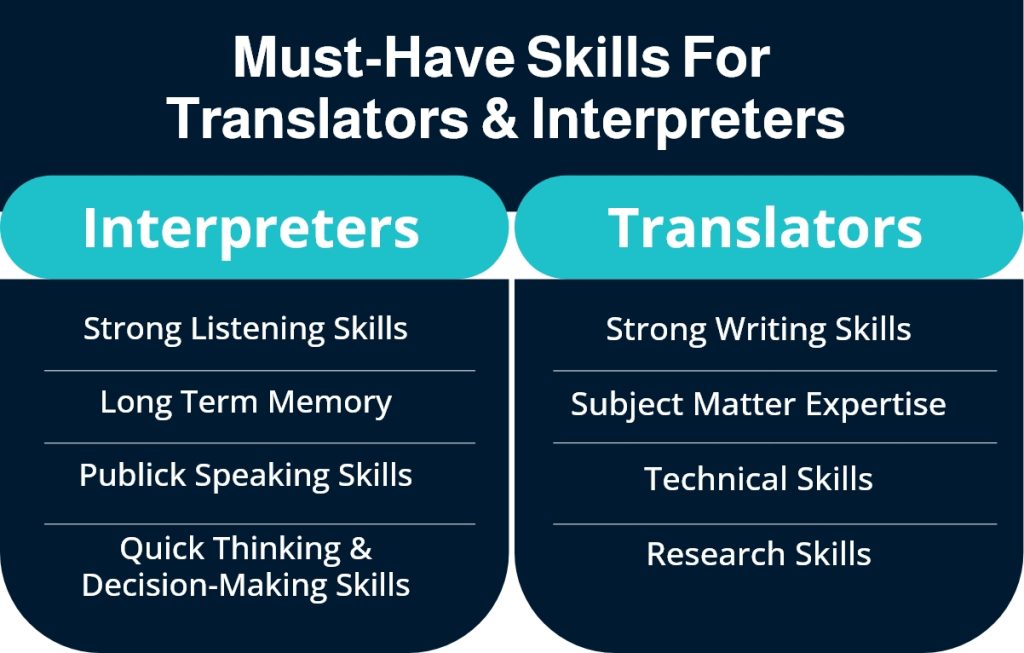Translation vs Interpretation: What Is The Difference
Navigating the complexities of international business requires overcoming language barriers, a task that is both crucial and challenging. Language not only shapes our identity but also enables us to convey ideas across diverse cultural landscapes.
To ensure clarity and avoid misunderstandings, companies expanding globally must invest in professional language services. However, it’s important to distinguish between types of language services, such as translation and interpretation, as each is suited to different contexts and needs.
In this blog post, we will explore the key differences between translation and interpretation and how each contributes uniquely to effective communication. Besides, you will also learn the skills you should expect while hiring a professional translator or interpreter.
Ready to start?
5 Key Differences Between Interpretation and Translation
While translation and interpretation may appear similar since both translators and interpreters work with languages daily and share a passion for their profession, the two involve different methods of delivering language services.
So let’s break down the key differences between translation and interpretation in light of 5 key factors:
1. Nature of Communication
- Interpretation
Interpretation goes with spoken language as interpreters listen to a speaker in one language and voice what was said in real-time in the target language. So, it is a live, on-the-spot service that helps enhance communication between two groups speaking different languages. Of course, an interpreter should understand the source language very well to be able to render the spoken message in the target language.
- Translation
Translators, on the other hand, work with text or written language and translate it from one language into another. Translators may refer to support and reach resources before starting translating. They can easily search for what they can’t get in the source language to ensure they translate it correctly to the target language and can also rely on translation tools to streamline the process.
 2. Types of Content
2. Types of Content
- Interpretation
Interpretation is required for verbal communication, such as meetings, conferences, phone calls, and live events. If real-time, verbal interaction is necessary, interpretation should be the go-to service.
There are many types of interpretation, the most common of them are consecutive and simultaneous interpreting
Consecutive interpreting is characterized by the interpreter waiting for the speaker to finish a segment of speech before translating it into the target language.
Simultaneous interpreting is where the interpreter translates the speaker’s words into the target language in real time, often using specialized audio equipment.
Translation can also be video interpretation or over the phone, not necessarily on-site.
- Translation
For written content such as documents, websites, user manuals, legal contracts, and marketing materials, translation services would be ideal. If the communication is in written form and requires accuracy and precision, translation is the service to choose.
 3. Accuracy and Precision
3. Accuracy and Precision
- Interpretation
Interpretation doesn’t always require strict adherence to the same words or phrases in the target language, allowing interpreters some freedom to convey the same message with the appropriate tone. While interpreters always strive for accuracy, the immediate nature of interpretation may lead to slight variations in how messages are conveyed.
The emphasis here is on effective communication rather than strict word-for-word accuracy. It’s important to remember that interpreters rely primarily on their knowledge and skills they don’t have any tools or resources to aid them other than their headsets, microphones, and their voice.
- Translation
The translation process is more intensive, offering a high level of precision, and professional translators always review, edit, and proofread their translations many times for a better outcome and to ensure understanding between languages and cultural appropriateness.
In addition to that, translators have the luxury of using computer-assisted translation (CAT) tools, translation memory systems, and glossaries that help them ensure consistency and efficiency.
4. Time Frame
- Interpretation
As we have mentioned before Interpretation happens in real-time or near real-time, requiring interpreters to convey the message instantly without the opportunity for post-event corrections. That is why It requires quick thinking and immediate delivery without the luxury of time for revisions. And its time frame is limited to the event time.
- Translation
Translation on the other hand typically has a longer time frame, allowing translators to thoroughly research the original text to ensure high-quality output and clear communication. Also, translators often engage in a dynamic process with clients, incorporating feedback and making adjustments to better meet specific requirements.
5. Budget and Resources
- Interpretation
Interpretation can be more resource-intensive due to the need for skilled interpreters who can convey complex information verbally in real-time. This type of work can be more resource-intensive and may require special equipment for simultaneous interpretation settings.
- Translation
Translation is often more cost-effective for static written materials such as documents, marketing pieces, or software content that does not require immediate turnaround. Tasks can also be distributed across linguists with varying schedules.
Of course, translation costs can vary significantly depending on the type of content, the subject matter at hand, and the timeline as well.
Must-Have Skills For Professionals Delivering Interpretation vs Translation
While interpreters and translators both require a strong foundation in linguistic abilities and professional qualifications, the specific skill sets they need can differ significantly due to the nature of their work. Here’s a closer look at the key skills that are particularly vital for each profession:
For interpreters, they should have the following skills:
- Active Listening: have excellent listening skills to grasp the speaker’s intent and deliver it smoothly
- Strong Memory: for interpretation, it all depends on the memory of the interpreter having a strong ability to retain information for long periods of time.
- Public Speaking: strong speaking skills as interpreters depend on the spoken word and clear pronunciation is a must for an interpreter to do the job.
- Quick Thinking and Decision-Making: the ability to process information rapidly and make quick decisions is crucial, as interpreters must convey messages in real time without pausing.
For translators, they should excel in the following skills:
- Writing Skills: excellent writing skills to produce natural-sounding text and written words that deliver the same message in a different language accurately
- Subject Matter Expertise: Expertise in specific areas such as legal, medical, technical, or literary translation can enhance a translator’s ability to produce accurate and reliable translations.
- Technical Skills: using CAT tools, translation Memory TM, and other software, a translator should be familiar with how to use it.
- Research Skills: translators often need to research terminology, cultural references, and subject-specific jargon to ensure their translations are accurate and relevant.
Get Your Translation & Interpretation Done By Laoret
Having a reliable partner that you can rely on for your business needs in translation and interpretation is crucial. At Laoret, we offer top-notch translation services that you can trust to accurately convey your message across languages.
Whether you need documents, websites, or any other content translated, our team of skilled linguists is here to help.
In addition, our interpretation services ensure seamless communication in multilingual settings, allowing you to engage confidently with clients, partners, and colleagues from around the world. We have a team of native language speakers who can effectively communicate with your target audience.
Contact Us today to discuss your translation and interpretation needs or Request a Quote and let your business succeed on a global scale.

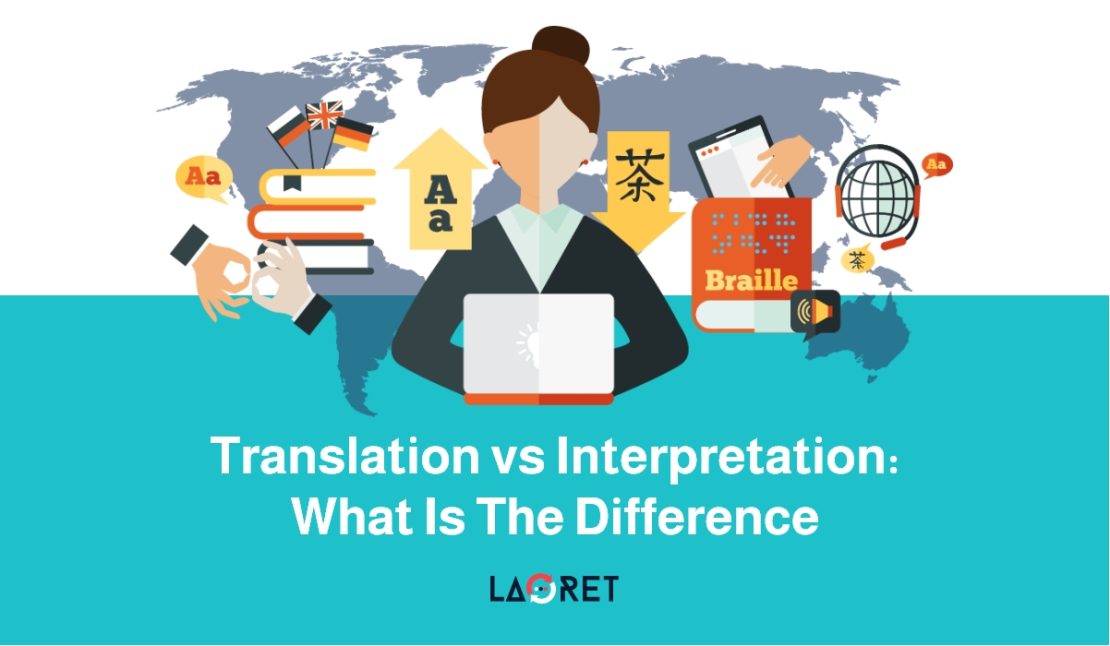
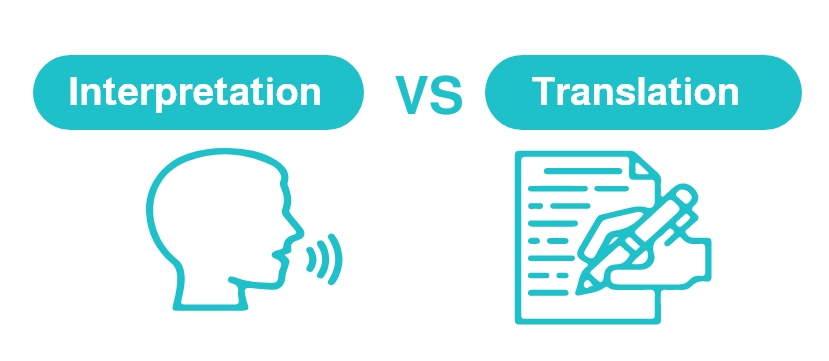 2. Types of Content
2. Types of Content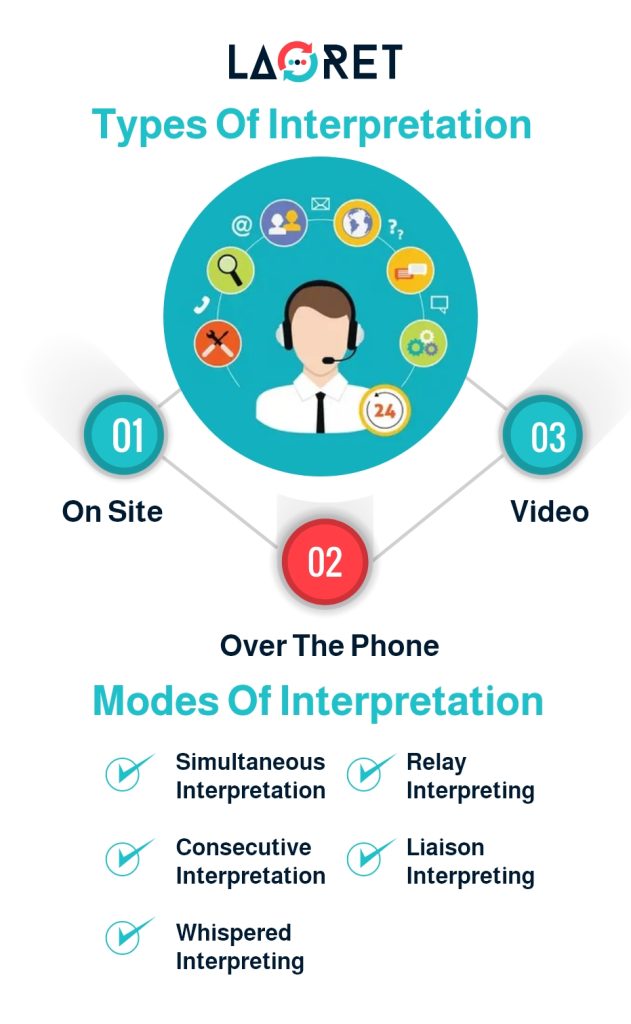
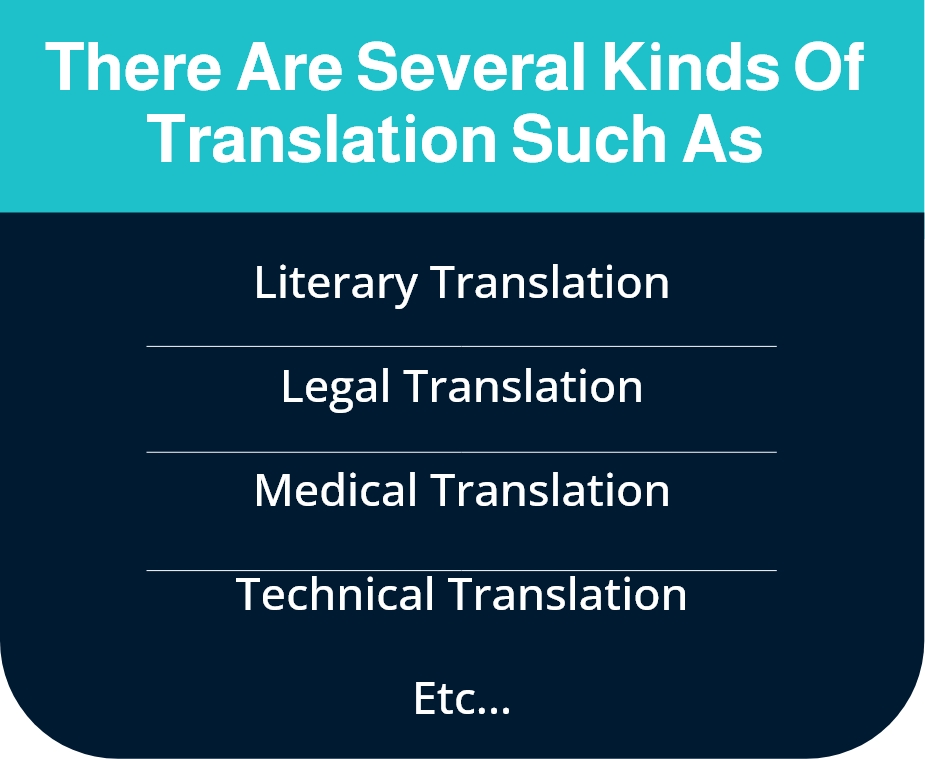 3. Accuracy and Precision
3. Accuracy and Precision